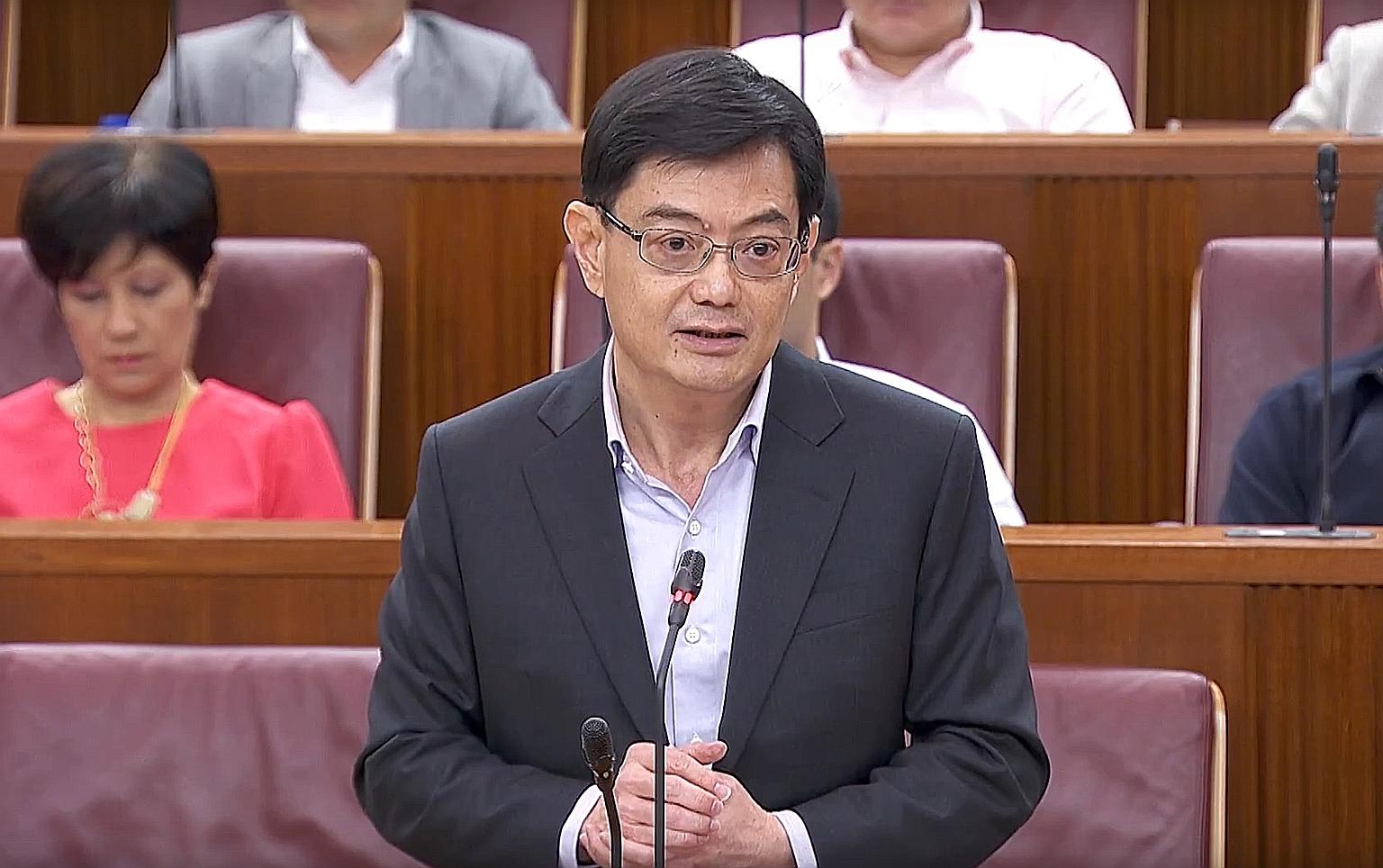Budget 2018 debate
GST hike will come with more help for low and middle income
Offset package and enhanced GST Voucher Scheme among the moves
Sign up now: Get ST's newsletters delivered to your inbox

A broad-based tax like the GST is required to fund Singapore's broad-based spending needs, such as healthcare, security and education, Finance Minister Heng Swee Keat said in Parliament yesterday.
PHOTO: SCREENGRAB FROM TV
Lower-and middle-income families as well as elderly people in need will receive additional help when the goods and services tax (GST) is raised, Finance Minister Heng Swee Keat promised yesterday.
Wrapping up an at-times contentious Budget debate in Parliament, he said the permanent GST Voucher Scheme to cushion the impact of the tax will be enhanced and a transitional offset package favouring those of lower and middle incomes will also be launched when the GST is increased to 9 per cent.
This is expected some time between 2021 and 2025.
The voucher scheme currently offers annual utility rebates of up to $390 to Housing Board flat dwellers, cash of up to $300 for adults with less income and Medisave top-ups of up to $450 for the elderly poor.
"Let me assure everyone that we are mindful of the impact of tax changes on households, particularly the lower-income, and will help them to adjust while maintaining a fair and progressive system of taxes and transfers," Mr Heng said.
He noted that MPs Lim Biow Chuan (Mountbatten) and Lee Bee Wah (Nee Soon GRC) had asked about setting up a Committee Against Profiteering to combat any illegal overcharging.
The Government is prepared to do so to ensure businesses do not use the GST hike as an excuse to raise prices beyond the increased tax, he said.
He also addressed concerns raised by MPs such as Mr Chong Kee Hiong (Bishan-Toa Payoh GRC), Ms Foo Mee Har (West Coast GRC) and Dr Intan Azura Mokhtar (Ang Mo Kio GRC) over the need to raise GST, and who had offered alternatives to the hike.
A broad-based tax like the GST is required to fund Singapore's broad-based spending needs, such as healthcare, security and education, Mr Heng said.
"Each generation should strive to pay for its own spending through sustainable means, instead of drawing down more than is prudent from the reserves or by borrowing and passing on the cost of current spending to future generations."
On the timing of the increase, Mr Heng said the Government had determined the need for it would arise some time between 2021 and 2025 by studying major trends and how they might affect Singaporeans. It then assessed what it had to do in response to these trends, and how it should find the resources to support these plans.
By announcing the GST increase early, he said the Government is being honest and upfront about the nation's needs, and what has to be done. "We are giving ample notice to citizens and businesses that we will need to raise GST," he said.
"I hope that it helps everyone to understand our shared challenges in coming years," he added.
In fact, Mr Heng noted, the 2 percentage-point GST increase will not fully cover Singapore's expenditure needs, but only make the fiscal gap more manageable.
The GST hike is expected to raise revenues worth about 0.7 per cent of gross domestic product each year. But future spending needs on healthcare, security and pre-schools already exceed this amount, he said.


